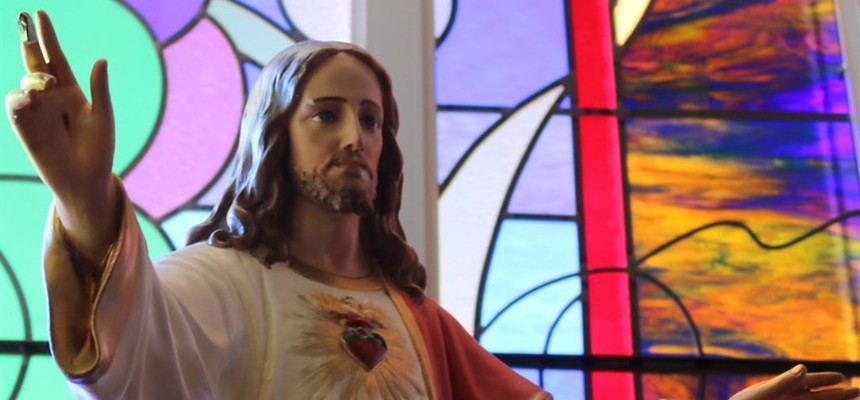What is Pelagianism?

Jesus And A New Life

Every Sunday in the creed we declare that Jesus is our Lord, but what does that mean? What implications does that have on our lives? In the Gospels Jesus tells us to love our neighbor (Mark 12:31), love God (Matthew 22:37), and show mercy (John 8:11).
How do his words correlate to his deeds, and what does that mean for us as his followers? This post will take a deeper look at the scriptures referenced to illustrate how the words that Christ spoke correspond with his actions.
Jesus And The Greatest Commandment
Jesus often spoke of what we now the call the greatest commandment. Our Lord spoke about loving God with all our heart and loving our neighbor as yourself. The first verse mentioned above is Mark 12:31 which states, “The second is this ‘You shall love your neighbor as yourself.’ There is no commandment greater than these” (NRSV).
To love your neighbor means so much more than greeting them when they are in their front yard. Whether they treated him as he deserved or not, Jesus showed compassion to everyone.
He healed the centurion’s servant in Matthew 8:13, St. Peter’s mother in law in Matthew 8:14, and healed a multitude in Matthew 14:14. In healing the centurion’s servant in Matthew 8:13, Jesus shows that his salvation is for Jew and Gentile alike.
In addition, this was a member of the occupying government and an enemy of the Jewish people. He shows us what we must do with those we do not agree with. We must still treat them as people as they are created in the image of God.
Loving God
To go along with loving our neighbor, Jesus tells us “Love the Lord your God with all your heart, and with all your soul, and with all your mind” (Matthew 22:37 NRSV). How is loving God a deed of Jesus? As the Son of God he is the only way to the Father, and Christ said we can only know the Father through him (John 14:6).
To love God with all your heart is to go where he leads and to do what he is telling us to do. In short, we must follow his will if we love him with our whole being. Jesus demonstrated this is many ways, with the most notable being his Passion.
Jesus And His Passion
In the garden of Gethsemane, we see the human will of Jesus manifesting itself. He is so terrified about what he must endure that he begins to sweat drops of blood (Luke 22:44).
This is a medical condition known as Hematidrosis, and occurs when an individual in experiencing extreme stress. He prayed that he may not have to endure, and this shows his humanity.
He was scared, and above all it means he can relate to what we go through. Though he was terrified, Christ knew his mission and because of his overwhelming love we are redeemed.
Jesus, Mercy, And New Life
In John chapter 8 Jesus encounters a group of Pharisees who are circling a woman and looking to stone her for the sin of adultery. According to Leviticus 20:10 this was the consequence for such an action, but adultery takes two people.
The woman was about to get stoned, but where was the man? It is speculated that the man was in the crowd that was wanting to stone the woman, and this was a way to trap Jesus. He knew what was going on, and said if someone present has never sinned then he could throw the stone (John 8:7).
Jesus told her to stop sinning, and did not condemn her. He forgave her for the sin by saying “Neither do I condemn you. Go your way, and from now on do not sin again” (John 8:11 NRSV). Jesus showed mercy and did not just talk about it. We see this several times in the Gospels, but this example is significant as the penalty was death for such a sin. He gave the woman a new life and hope, and tells us to do the same.
Jesus gives us new life through him. Are we showing mercy? Do our lives reflect it? Are we living the truth and mercy of the Gospel?
Recommended Stories
More Stories By :














